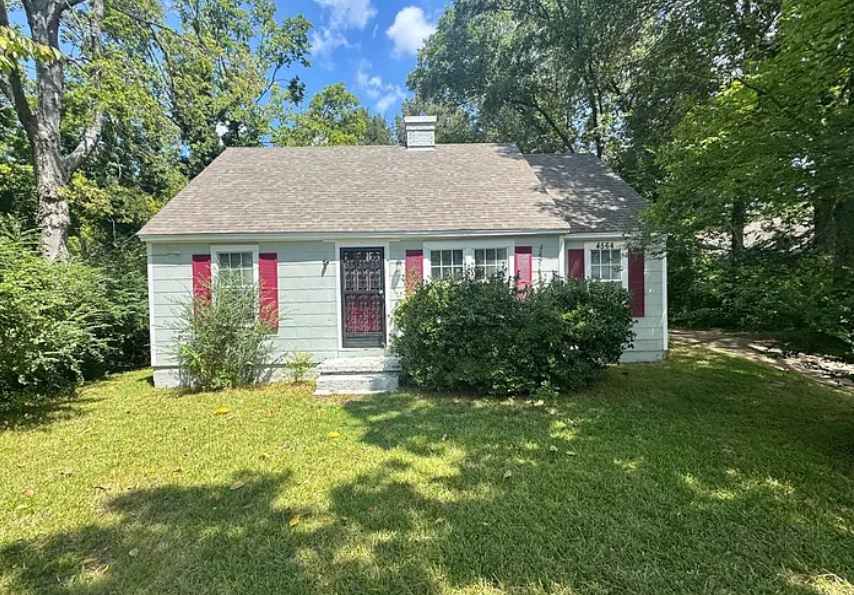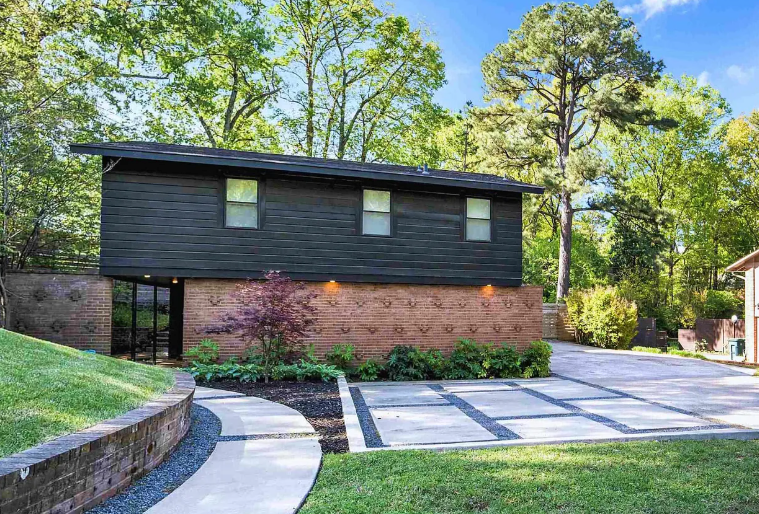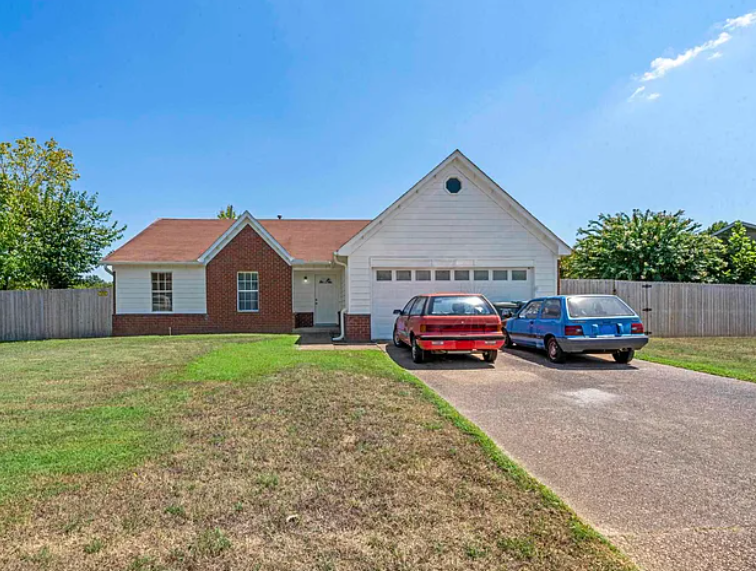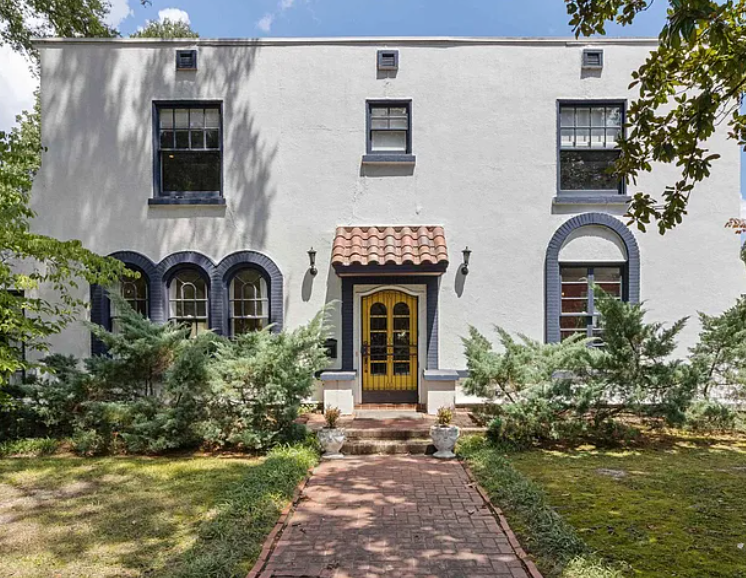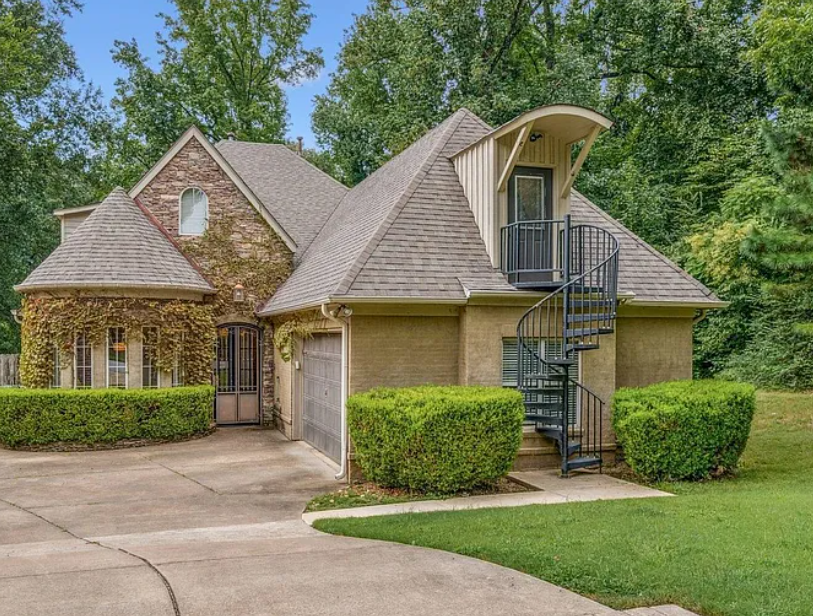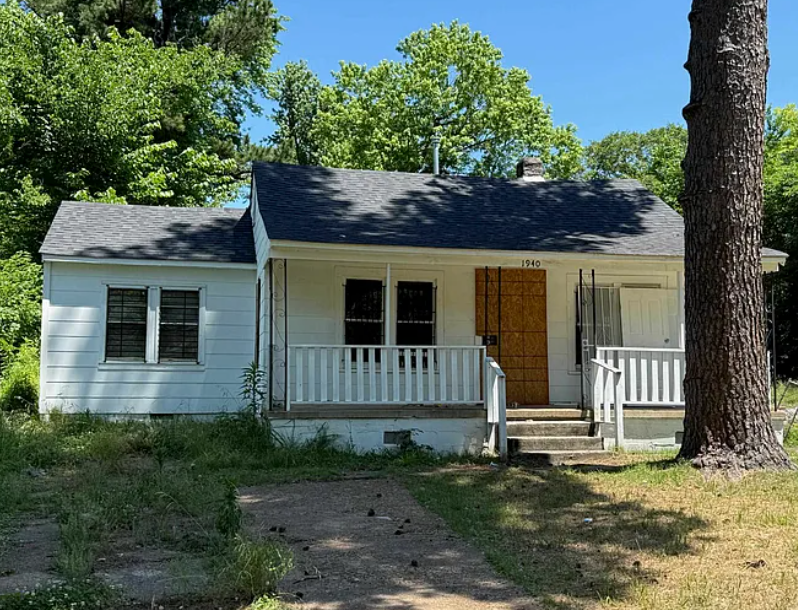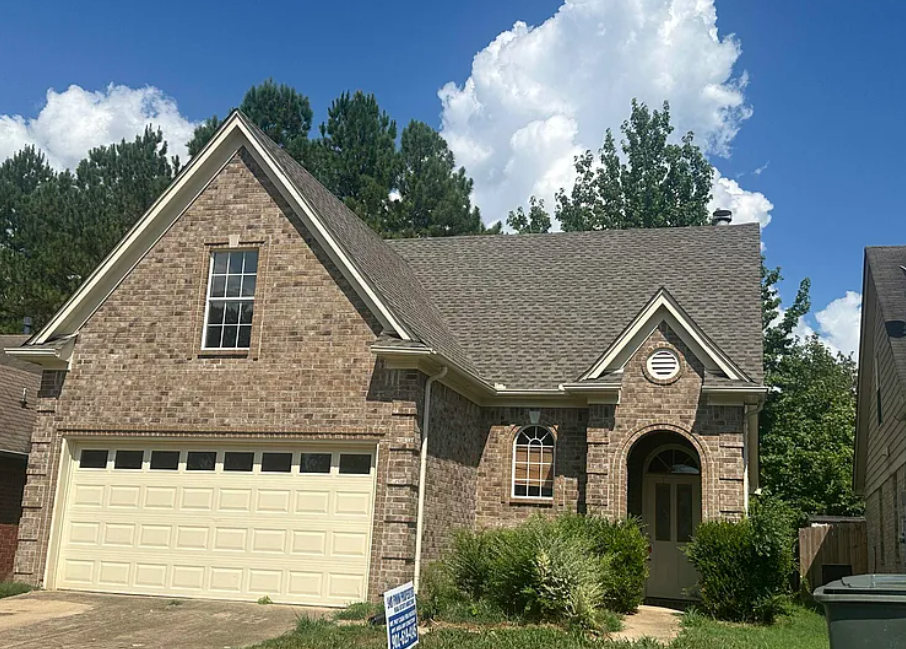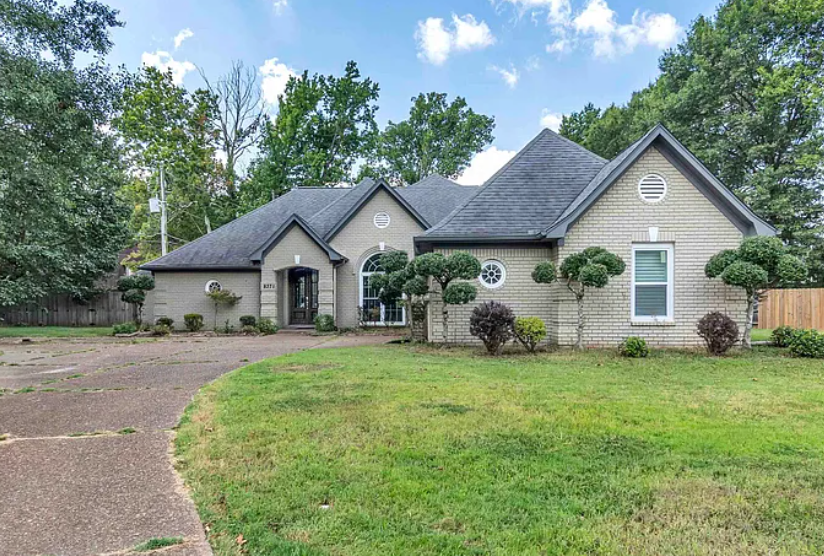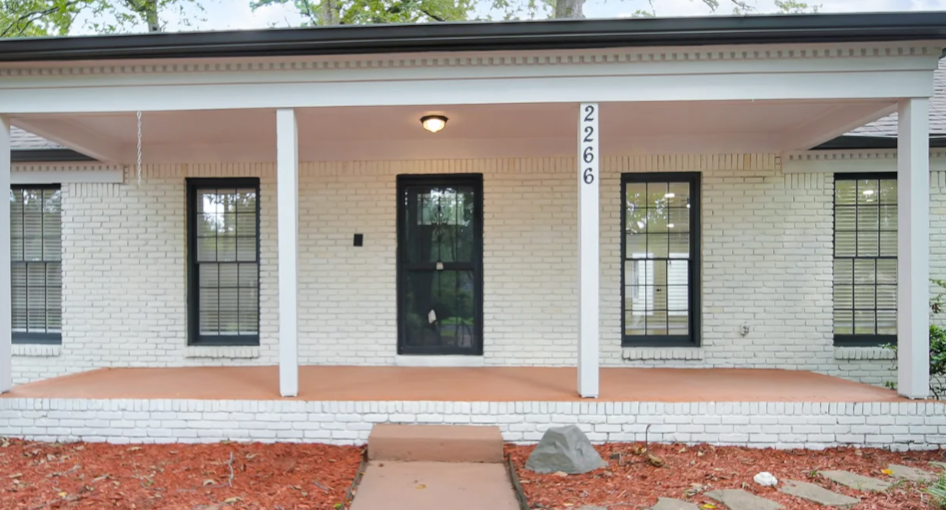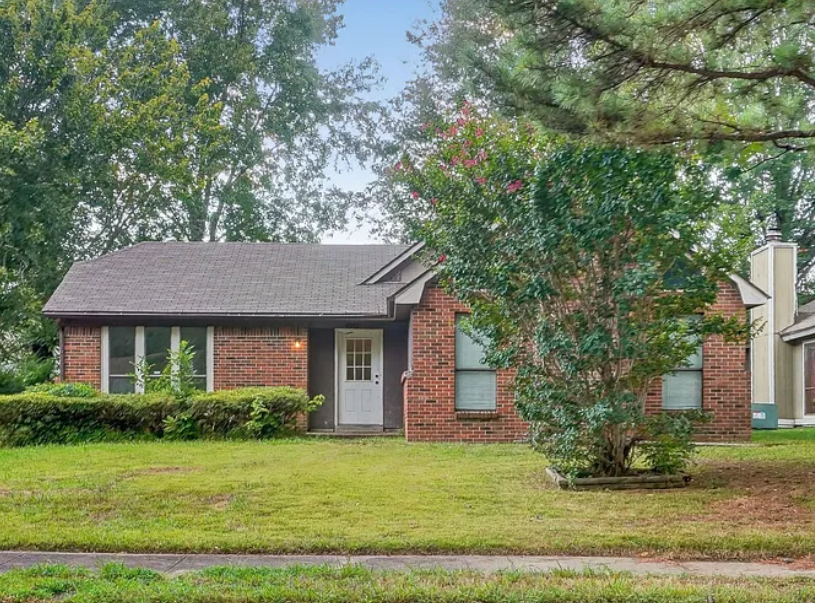Memphis Foreclosure Help: How to Sell Your House Fast Before Foreclosure

Facing foreclosure in Memphis can feel like being trapped in a nightmare with no way out, but understanding your options and acting quickly can help you avoid the devastating consequences of losing your home to foreclosure proceedings. Tennessee's foreclosure laws and Memphis's current real estate market conditions create opportunities for homeowners to escape foreclosure through strategic property sales, even when traditional financing options have failed and time is running short.
The foreclosure process in Tennessee moves relatively quickly compared to many states, with non-judicial foreclosure procedures that can result in property loss within 4 to 6 months of the first missed payment. However, this same speed can work in your favor if you understand the timeline and take decisive action to sell your property before the foreclosure sale occurs. Memphis's strong cash buyer market provides homeowners with alternatives that can stop foreclosure proceedings while preserving credit and providing fresh starts.
Memphis homeowners facing foreclosure in 2025 benefit from market conditions that include median home prices of $204,625, relatively quick sale times averaging 31 days, and numerous cash buyers who specialize in distressed property purchases. These conditions create realistic opportunities for homeowners to sell their properties quickly, pay off mortgage obligations, and avoid the long-term financial and emotional consequences of foreclosure.
Understanding Tennessee's foreclosure laws, your rights as a homeowner, and the alternatives available through Memphis's real estate market can help you make informed decisions during one of the most stressful periods you may ever face. While foreclosure proceedings can feel overwhelming, knowledge and quick action can help you regain control of your situation and protect your financial future.
Understanding Tennessee's Foreclosure Process
Tennessee's foreclosure laws favor lenders through non-judicial foreclosure procedures that allow mortgage companies to foreclose on properties without court supervision, creating faster timelines than judicial foreclosure states but also providing fewer opportunities for homeowner intervention. Understanding this process and its timeline is crucial for Memphis homeowners who want to explore alternatives before losing their properties.
The Foreclosure Timeline in Tennessee
The foreclosure process in Tennessee typically begins 30 days after a missed mortgage payment, when lenders are legally permitted to begin foreclosure proceedings. However, most lenders provide additional time before initiating formal procedures, often waiting 60 to 90 days to allow homeowners opportunities to catch up on payments or work out alternative arrangements.
The formal foreclosure process begins when the lender files a Notice of Default and Election to Sell, which must be recorded in the county register's office where the property is located. For Memphis properties, this filing occurs in Shelby County, and the notice becomes part of the public record, making the foreclosure proceedings visible to potential buyers and investors.
Following the Notice of Default, Tennessee law requires a 20-day notice period before the foreclosure sale can occur. During this period, the lender must publish notice of the foreclosure sale in a newspaper of general circulation in the county for three consecutive weeks, with the first publication occurring at least 20 days before the sale date.
The foreclosure sale itself occurs as a public auction, typically held at the courthouse or another designated public location. Properties are sold to the highest bidder, with the lender often bidding the amount of the outstanding mortgage debt. If no other bidders exceed this amount, the lender takes ownership of the property.
Homeowner Rights During Foreclosure
Tennessee law provides homeowners with specific rights during foreclosure proceedings, though these protections are more limited than in judicial foreclosure states. Understanding these rights can help homeowners protect their interests and explore alternatives to foreclosure completion.
Homeowners have the right to receive proper notice of foreclosure proceedings, including the Notice of Default and publication of sale notices. If lenders fail to provide proper notice or follow required procedures, homeowners may be able to challenge the foreclosure in court.
The right of redemption in Tennessee is limited compared to many states, with homeowners generally losing redemption rights once the foreclosure sale occurs. This limitation makes it crucial for homeowners to act quickly if they want to avoid foreclosure through property sale or other alternatives.
Homeowners also have rights related to surplus proceeds if the foreclosure sale generates more money than needed to pay off the mortgage and associated costs. However, foreclosure sales typically occur at below-market prices, making surplus proceeds uncommon.
Deficiency Judgment Risks
Tennessee law allows lenders to pursue deficiency judgments against homeowners when foreclosure sales don't generate enough money to pay off the full mortgage debt. These judgments can result in wage garnishment, bank account seizure, and other collection actions that can continue to impact homeowners' financial lives long after losing their properties.
Understanding deficiency judgment risks helps homeowners evaluate the benefits of selling their properties before foreclosure, as successful pre-foreclosure sales can eliminate these risks while providing homeowners with more control over the outcome.
Memphis Market Conditions and Foreclosure Alternatives
Memphis's 2025 real estate market conditions create opportunities for homeowners facing foreclosure to sell their properties quickly and avoid the negative consequences of foreclosure completion. Understanding these market conditions and how they apply to distressed property sales can help homeowners develop effective strategies for escaping foreclosure.
Current Market Dynamics
Memphis's median home price of $204,625 and 7.7% year-over-year appreciation suggest that many homeowners facing foreclosure may have equity in their properties that can be preserved through strategic sales. Even homeowners who owe more than their properties' current market value may be able to negotiate short sales that eliminate mortgage obligations without foreclosure.
The Memphis market's 31-day average time on market indicates that properly priced properties can sell relatively quickly, providing homeowners with realistic timelines for avoiding foreclosure through traditional or cash sales. However, homeowners facing foreclosure often need faster solutions than traditional sales can provide.
Memphis's somewhat competitive market environment, with homes selling at 96% of list price on average, suggests that homeowners can achieve reasonable sale prices even under time pressure, particularly if they price their properties competitively and work with experienced professionals who understand distressed property sales.
Cash Buyer Opportunities
Memphis's strong cash buyer presence creates particular opportunities for homeowners facing foreclosure, as these buyers specialize in quick purchases that can stop foreclosure proceedings before sale dates occur. Cash buyers understand the urgency of foreclosure situations and often prioritize these transactions to help homeowners avoid foreclosure consequences.
Cash buyers typically can close transactions within 2 to 4 weeks, providing homeowners with realistic timelines for stopping foreclosure proceedings even when sale dates are approaching quickly. This speed advantage can be crucial for homeowners who have limited time before foreclosure sales occur.
The Memphis area's numerous cash buyers, operating throughout Shelby, Fayette, Tipton, and DeSoto counties, provide homeowners with multiple options for quick sales. Competition among cash buyers can help ensure that homeowners receive fair offers even under time pressure.
Investment Property Considerations
Memphis's strong rental market and affordable property prices attract investors who may be interested in purchasing properties subject to foreclosure, either through direct sales to homeowners or at foreclosure auctions. Understanding this investor interest can help homeowners position their properties effectively for quick sales.
Properties in Memphis neighborhoods with strong rental demand may attract investor interest even when they need repairs or updates, providing homeowners with sale opportunities that might not exist in markets with weaker investment activity.
Alternatives to Foreclosure Completion
Homeowners facing foreclosure in Memphis have several alternatives that can help them avoid the negative consequences of foreclosure completion while addressing their mortgage obligations and financial difficulties.
Pre-Foreclosure Sales to Cash Buyers
Selling your property to a cash buyer before the foreclosure sale occurs represents one of the most effective ways to avoid foreclosure while preserving your credit and eliminating deficiency judgment risks. Cash buyers who specialize in distressed properties understand the urgency of foreclosure situations and can often close transactions quickly enough to stop foreclosure proceedings.
The process typically begins with contacting cash buyers who operate in Memphis and explaining your situation, including the foreclosure timeline and your property's condition. Experienced cash buyers can often provide preliminary offers within 24 to 48 hours and close transactions within 2 to 4 weeks if all parties cooperate.
Cash buyers typically purchase properties "as-is," eliminating the need for homeowners to invest in repairs or improvements that they may not be able to afford during financial difficulties. This approach allows homeowners to focus on the sale process rather than property preparation.
The sale proceeds can be used to pay off the mortgage debt, eliminating the foreclosure and avoiding negative credit consequences. If the sale generates more than the mortgage balance, homeowners keep the surplus, providing them with funds for relocation and fresh starts.
Short Sales and Lender Negotiations
When homeowners owe more than their properties are worth, short sales may provide alternatives to foreclosure that benefit both homeowners and lenders. Short sales involve selling properties for less than the mortgage balance with lender approval, eliminating the debt without foreclosure proceedings.
Memphis's current market conditions may support short sale negotiations, particularly for properties that have lost value due to condition issues or neighborhood changes. Lenders often prefer short sales to foreclosure because they avoid the costs and delays associated with foreclosure proceedings and property management.
The short sale process requires lender approval and can take several weeks to complete, making it important for homeowners to begin negotiations as early as possible in the foreclosure timeline. Working with real estate professionals who have short sale experience can help ensure that negotiations proceed efficiently.
Successful short sales eliminate mortgage obligations and avoid foreclosure, though they may still have credit implications. However, these credit impacts are typically less severe than foreclosure and may allow homeowners to qualify for new mortgages sooner than foreclosure would permit.
Loan Modifications and Workout Agreements
Some homeowners facing foreclosure may be able to negotiate loan modifications or workout agreements that allow them to keep their properties while addressing their financial difficulties. These alternatives work best for homeowners whose financial problems are temporary and who have realistic prospects for resuming regular mortgage payments.
Loan modifications can involve reducing interest rates, extending loan terms, or adding missed payments to the loan balance to create more affordable payment structures. However, these modifications require lender approval and may not be available for all homeowners or all types of financial difficulties.
Workout agreements might include temporary payment reductions, forbearance periods, or other arrangements that provide homeowners with time to address their financial problems while avoiding foreclosure. These agreements require good faith negotiations with lenders and realistic plans for resolving underlying financial issues.
Deed in Lieu of Foreclosure
Deed in lieu of foreclosure involves voluntarily transferring property ownership to the lender in exchange for release from mortgage obligations. This alternative can avoid the time and expense of foreclosure proceedings while eliminating deficiency judgment risks.
Lenders may consider deed in lieu arrangements when properties have little or no equity and foreclosure proceedings would be costly and time-consuming. However, lenders typically require that homeowners attempt to sell their properties before considering deed in lieu options.
Deed in lieu arrangements have credit implications similar to foreclosure but may be completed more quickly and with less stress than foreclosure proceedings. Homeowners considering this option should understand the credit consequences and explore other alternatives first.
How Cash Buyers Can Stop Foreclosure
Cash buyers provide Memphis homeowners with one of the most effective tools for stopping foreclosure proceedings while preserving credit and avoiding long-term financial consequences. Understanding how cash buyers operate and what they can offer helps homeowners evaluate this option effectively.
Speed and Certainty Advantages
Cash buyers' ability to close transactions within 2 to 4 weeks provides homeowners with realistic timelines for stopping foreclosure proceedings even when sale dates are approaching quickly. This speed advantage comes from eliminating financing contingencies, appraisal requirements, and other factors that can delay traditional sales.
The certainty of cash transactions eliminates many of the risks associated with traditional sales, including financing denials, inspection issues, and other problems that can cause sales to fall through. For homeowners facing foreclosure, this certainty is crucial for ensuring that sales complete before foreclosure dates.
Cash buyers typically have experience with distressed property purchases and understand the urgency of foreclosure situations. This experience allows them to move quickly through due diligence and closing processes while addressing any issues that might arise.
As-Is Purchase Benefits
Cash buyers' willingness to purchase properties "as-is" eliminates the need for homeowners to invest in repairs or improvements that they may not be able to afford during financial difficulties. This approach allows homeowners to focus on the sale process rather than property preparation.
Properties facing foreclosure often have deferred maintenance issues or other problems that might discourage traditional buyers. Cash buyers typically factor these issues into their offers rather than requiring repairs, making sales possible even for properties in poor condition.
The as-is approach also eliminates inspection negotiations and repair requests that can delay traditional sales and create additional stress for homeowners already dealing with foreclosure pressure.
Flexible Closing Terms
Cash buyers often provide flexible closing terms that can accommodate homeowners' specific situations and foreclosure timelines. This flexibility might include expedited closings when foreclosure dates are approaching or delayed closings when homeowners need additional time to arrange relocation.
Some cash buyers can also provide assistance with moving expenses or temporary housing arrangements, helping homeowners transition to new living situations while avoiding the trauma of foreclosure eviction.
Financial Implications and Credit Protection
Understanding the financial implications of different foreclosure alternatives helps homeowners make informed decisions about the best approaches for their specific situations and long-term financial goals.
Credit Score Impact Comparison
Foreclosure completion typically results in credit score decreases of 100 to 200 points and remains on credit reports for seven years, significantly impacting homeowners' ability to qualify for new mortgages, credit cards, and other financing. These credit consequences can affect employment opportunities, insurance rates, and other aspects of financial life.
Pre-foreclosure sales that pay off mortgage obligations completely avoid foreclosure credit consequences, allowing homeowners to preserve their credit scores and maintain access to financing for future housing and other needs.
Short sales and deed in lieu arrangements typically have less severe credit impacts than foreclosure completion, though they still result in negative credit reporting. However, these alternatives may allow homeowners to qualify for new mortgages sooner than foreclosure would permit.
Deficiency Judgment Elimination
Successful pre-foreclosure sales that generate enough proceeds to pay off mortgage balances eliminate deficiency judgment risks, protecting homeowners from future collection actions and wage garnishment. This protection can be worth thousands of dollars and provides peace of mind for homeowners starting fresh.
Even when sale proceeds don't cover the full mortgage balance, negotiated settlements with lenders can often eliminate deficiency judgment risks as part of short sale agreements or other workout arrangements.
Tax Implications
Foreclosure and foreclosure alternatives can have tax implications that homeowners should understand when evaluating their options. Forgiven mortgage debt may be considered taxable income under federal tax law, though various exceptions and exclusions may apply.
The Mortgage Forgiveness Debt Relief Act and other tax provisions may provide relief for homeowners whose mortgage debt is forgiven through foreclosure alternatives, but these provisions have specific requirements and limitations that homeowners should understand.
Consulting with tax professionals can help homeowners understand the tax implications of different foreclosure alternatives and plan accordingly for any tax obligations that might arise.
Working with Memphis Foreclosure Professionals
Successfully navigating foreclosure alternatives often requires professional assistance from attorneys, real estate professionals, and other experts who understand Tennessee foreclosure law and Memphis market conditions.
Foreclosure Defense Attorneys
Experienced foreclosure defense attorneys can help homeowners understand their rights, evaluate their options, and negotiate with lenders to achieve the best possible outcomes. Memphis area attorneys who specialize in foreclosure defense understand Tennessee law and local court procedures.
Legal representation can be particularly valuable for homeowners who believe their lenders have violated foreclosure procedures or who need assistance negotiating complex workout agreements or short sales.
Real Estate Professionals and Cash Buyers
Real estate agents with distressed property experience can help homeowners navigate traditional sales processes while working within foreclosure timelines. However, cash buyers often provide faster solutions that may be more appropriate for homeowners facing imminent foreclosure sales.
Interviewing multiple cash buyers and understanding their processes, timelines, and offer criteria can help homeowners select buyers who can best meet their needs and timelines.
HUD-Approved Housing Counselors
The U.S. Department of Housing and Urban Development (HUD) provides free foreclosure counseling through approved agencies in Memphis. These counselors can help homeowners understand their options, communicate with lenders, and develop action plans for avoiding foreclosure.
HUD counseling services are free and can provide valuable guidance for homeowners who are unsure about their options or need assistance navigating complex foreclosure situations.
Emergency Resources for Memphis Homeowners
Memphis homeowners facing foreclosure have access to various emergency resources that can provide assistance, guidance, and support during foreclosure proceedings.
Local Assistance Programs
Memphis and Shelby County offer various assistance programs for homeowners facing foreclosure, including emergency mortgage assistance, legal aid services, and housing counseling. These programs may have specific eligibility requirements and limited funding, making early application important.
Non-profit organizations in Memphis also provide foreclosure assistance, including counseling services, legal referrals, and emergency financial assistance for qualified homeowners.
State and Federal Programs
Tennessee and federal agencies offer foreclosure prevention programs that may provide assistance for qualified homeowners. These programs change over time and may have specific eligibility requirements related to income, property type, and foreclosure status.
Researching available programs and applying early in the foreclosure process can provide homeowners with additional options for avoiding foreclosure completion.
Conclusion: Taking Action to Avoid Foreclosure in Memphis
Facing foreclosure in Memphis requires quick action and informed decision-making, but homeowners have realistic options for avoiding foreclosure completion and protecting their financial futures. Memphis's current market conditions, including strong cash buyer presence and reasonable sale timelines, provide homeowners with viable alternatives to foreclosure that can preserve credit and eliminate long-term financial consequences.
The key to successful foreclosure avoidance lies in understanding Tennessee's foreclosure timeline, evaluating all available options, and acting quickly to implement the best strategy for your specific situation. Whether through cash sales, short sales, loan modifications, or other alternatives, homeowners who take decisive action can often avoid foreclosure while achieving better outcomes than foreclosure completion would provide.
Memphis's real estate market and professional community provide homeowners with the resources and opportunities needed to escape foreclosure successfully. By understanding the process, exploring all options, and working with experienced professionals, homeowners can navigate foreclosure challenges while protecting their financial futures and maintaining hope for fresh starts.
The emotional and financial stress of foreclosure is real and significant, but it doesn't have to define your future. Memphis homeowners who act quickly and make informed decisions can often avoid foreclosure while preserving their credit and financial stability for years to come.
Request Your Offer Now
